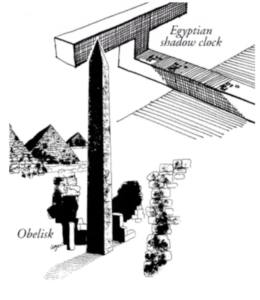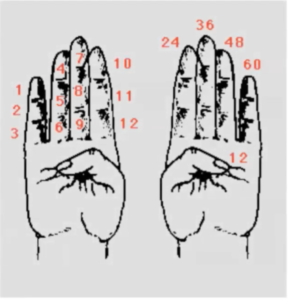Recently, Petra Coach presented a webinar, Thinking Differently in the New Year: A Fresh Look on Time, Change, and our Thinking Process with Oksana Esberard.
You can find the full recording below.
Be sure to get your copy of Oksana’s best-selling book, Next Level You, now available on Audible.
Top Takeaways
The First Clock
- ‘Obelisk’ – the Egyptian shadow clock
- Very approximate
- Created to manage the workday
Why 60? (Seconds & Minutes)
- It was comfortable for them to count on their hands
The Point: We have a lot of conceptions about time. However, time is a human concept – it doesn’t really exist.
“Don’t wish for more time, streamline your actions.”
Actions = Cognitive Behavior (Habitual Thinking) + Past Experiences
How Are Our Thoughts Created?
- When you have a realization or make a connection, neurons make literal connections (link) with one another in your brain.
- These are either strengthened by our habitual thinking, or we “unlink” them.
- Pruning = “use it or lose it”
Tangible Factors vs. Intangible Factors
- We are so caught up in “doing,” we neglect the intangible factors (soft skills)
“People are very open-minded about new things, as long as they’re exactly like the old ones.” -Charles F. Kettering
Adjustment vs. Change
- The word “change” is often associated with sudden, drastic, out of our control.
- Viewing it as an “adjustment” instead gives you more control because it’s incremental, gradual and on your own terms
- This creates less resistance
- Change is a personal bodily experience depending on each individual’s cognitive beliefs, habitual thinking, and past experiences. These determine how you’re going to react.
Tools vs. Skills
- If you are given the best knives, appliances, and quality foods, that does not automatically make you a great chef.
- In the work environment, we often fall short here focusing too much on tools instead of skills.
Top Time Skills
- Awareness
- Thinking and feeling realistically about your time by embracing it as a limited resource
- Arrangement
- Designing and organizing your goals, plans, schedules, and tasks to effectively use time to feel balanced
- Adaptation
- Monitoring your use of time while performing activities and adjusting to interruptions or changing priorities
Building Accurate Self-Awareness
- Professionals often focus most on arrangement skills, but this means we are lacking in the other 2 categories
- Our self-awareness as people is 24% false evaluation – we need external factors to create correct self-awareness
- 44% of employers reported very high level of stress (Gallup)
- Since 2020/pandemic times, this has increased
Developing Awareness Skills
- Find your peak performance slots
- Put the most important/challenging things here
- Take a “future time” perspective
- How is what I’m doing today going to impact my week/month/year/10-year plan?
- Rethink often
- The recommendation is the rethink every decision 4 times
Develop Your Awareness with Oksana: https://calendly.com/sattvame/consultation
Developing Arrangement Skills
This is the best practiced one
- Prioritize activities (not just list them)
- Schedule protected time
- Test half-sizing your goals
It’s not about organizing your work to better control your life, it’s about taking control of your life, then structuring your work around it
“It is not necessary to change. Survival is not mandatory.” –W Edwards Deming
Developing Adaptation Skills
- Stacking the habits and tasks
- If you’re already doing one thing every day, lump a second habit onto that time to create that habit as well
- Working in “sprints”
- When working under pressure, set up a timer for 15-30 minutes and then take a break and repeat
- Creating contingency plans: think about best- and worst-case scenarios
- Gives us mental clarity that simmers emotions down
- If we can make peace with the worst-case scenario, we can move forward in a better mental state
Book Recommendation: Atomic Habits by James Clear
Rituals for Stability
- Make sure that during busy seasons or times of change, you keep up the small things that make you feel grounded and balanced.
Like what you see? Register for our upcoming workshops & webinars today!






